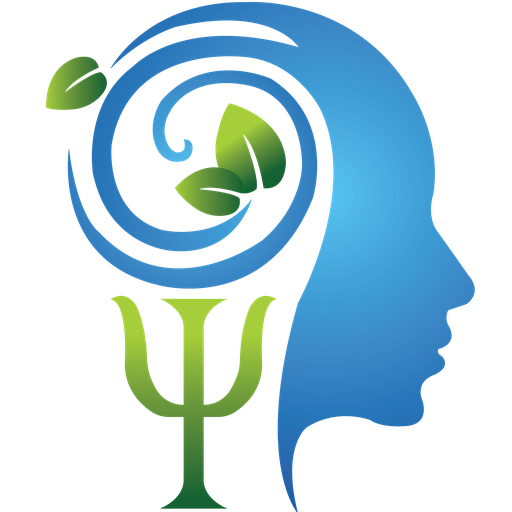
LEARNED HELPLESSNESS
Some time ago in the comments to one of the posts on Facebook, there was a discussion about why women in abusive relationships often don't see a way out or can't use opportunities to exit these relationships. This kind of argument arises quite often, people who have never been in such relationships themselves wonder what prevents them from changing their lives, standing up for themselves, ending these relationships? Have you ever experienced a feeling of helplessness? It's one of the most painful emotions.
It's not just sadness, it's the realization that you can't change or somehow control a negative situation.
The state of learned helplessness is when repeated situations of helplessness lead to a person being unable or even not trying to get out of these situations. This happens because previous experience has reinforced in them the belief that they are not able to find a way out and change the situation. That is, they have 'learned' that they are helpless to influence their fate in any way, even when change is possible.
When such experience occurs in childhood and is repeatedly repeated or when the situation of helplessness is especially traumatic, then helplessness generalizes. That is, in any difficult situation, a person is overwhelmed by a feeling of helplessness, they believe that no matter what they do, they still won't succeed. And so they give up, even without starting, accepting the role of a victim of circumstances, other people, and their own (as they believe) inferiority, inability, stupidity, and weakness.
Learned helplessness has three key characteristics:
- passivity when faced with traumatic circumstances;
- difficulty in realizing that actions can control and change circumstances;
- increased stress levels.
Learned helplessness leads to an increased risk of depression. In some cases, it is associated with PTSD.
Dog experiments
Learned helplessness is the result of negative conditional learning. This learning is mostly unconscious. When we experience a feeling of helplessness, we are more likely to 'learn' that we should not try to change the situation, nothing will work out anyway or it will be even worse. The theory of learned helplessness was developed in the late 1960s by American psychologist Martin Seligman, who through an experiment on dogs clearly showed the causes and consequences of learned helplessness.
- The control group of dogs was not subjected to any impact.
- In the second group, dogs were subjected to series of electric shocks until they pressed a lever located in their cage.
- In the third group, dogs could not influence the outcome in any way, electric shocks were turned off only when a dog in the adjacent cage pressed the lever.
Dogs that could not control the electric shock began to show signs of anxiety and depression. Those dogs that were subjected to electric shock but could control it did not show such signs.

In a subsequent series of experiments, dogs were placed in cages with a low barrier. Dogs from the first and second groups quickly learned to jump over this barrier to avoid electric shock. However, dogs from the third group (which in the first series of experiments could not control the electric shock) did not even try to avoid painful electric shocks, they simply lay on the floor and whined pitifully, enduring shocks of increasing strength. The fact is that, based on previous experience, the dogs were taught that they could not control the situation in any way and could do nothing to save themselves from the electric shock. They were taught a helplessness response.
Childhood
In many cases, learned helplessness is formed already in childhood. When parents do not adequately respond to requests for help, children can learn that they cannot change the situation in any way.
Children who have repeatedly experienced neglect, abuse (psychological, physical, or sexual), or have witnessed domestic violence develop feelings of helplessness and powerlessness. Such children carry this learned helplessness through life and in adulthood much more easily become victims of abuse in relationships (although this is not the only mechanism that links childhood traumas with abusive relationships later), because they simply cannot fight back.
- low self-esteem;
- low motivation;
- lowered expectations;
- they easily give up when difficulties arise;
- don't ask for help;
- believe that the cause of their failures is lack of abilities;
- believe that the cause of success lies in external factors (for example, luck).
Abuse
How is this connected to people, specifically women in abusive relationships? In the situation of domestic violence, besides physical violence, victims are often subjected to emotional, psychological, and economic violence. They are blackmailed with money, gradually distanced from friends and relatives, thus limiting the circle of support. The victim finds themselves in complete dependence on the abuser. This all happens not suddenly, but gradually, imperceptibly, in small steps, small compromises. When the victim begins to realize that they are living with an abuser, they already have very few resources (psychological, economic) to leave and protect themselves. Often women make several unsuccessful attempts to exit these relationships and eventually begin to believe that they will never be able to leave the abuser, even if there is an opportunity to get help and support.
Victims simply accept that bad things will happen to them and that they cannot influence it in any way. They are unable to solve problems, even when there is an available solution in front of them.
What to do?
The first step is, of course, awareness of the problem. It's important to understand that our idea of our own helplessness is not reality, not a fact, but an ingrained mindset.
We need to work on our thinking. Usually, people with learned helplessness have an 'internal demoralizer'. It constantly feeds helplessness with negative, depressive, criticizing, demeaning thoughts: 'nothing will work out anyway', 'it's my own fault', 'I'll never cope with this', 'this is my fate', 'there's no point in even trying', 'I don't deserve better'. It's important to catch these thoughts and work on them. It would be good to find the source. Who talked to you like this in the past? Perhaps these are the words of one of your parents, teachers? When you understand that these demotivating thoughts are just an introjection of someone from your past, they begin to lose their power over you. You can start learning to perceive these thoughts as just thoughts, which are not facts, which can be questioned, tested experimentally, and changed to more realistic ones.
Since learned helplessness is the result of learning, it can be changed through the same learning. What does 'change through learning' mean? It means starting to act. Despite negative thoughts, set goals, carefully plan steps to achieve them. And take necessary steps. Each time you take even a small step towards the goal, celebrate this victory, praise yourself, perceive it as your own achievement. And learn to perceive failures as opportunities. Opportunities to find a new solution, learn something new, change strategy. Ask yourself questions: 'What can I do to avoid such a mistake in the future?', 'What did this experience teach me?', 'What am I missing to overcome this obstacle?', 'How can I get the missing resource?', 'What alternative solutions are possible?'.
The most important thing is to start gradually feeling control over your life. Start paying attention to things you are competent in, to what you can handle at the moment, and take small steps in the necessary direction.
Ask for help. Asking for help is not weakness. Sometimes we need support to get back on our feet, to start taking the first steps.
P.S. The theory of learned helplessness finds practical application in various areas of psychology, including the psychology of motivation.

About the Author: Lolita Yambaeva Papacosta
I am a licensed clinical psychologist in Cyprus. I provide therapy and assessment services for adults, children, adolescents, and their parents for a broad range of concerns and mental health issues. I speak Russian, English, and Greek fluently. I see clients in the office and offer online consultations through Skype. I offer a safe, nonjudgmental, and collaborative environment that fosters change and growth. I specialize in the assessment and treatment of a variety of issues including anxiety, depression, bipolar disorder, personality disorders, relationship difficulties, psychotic disorders, addiction, low self-esteem, panic attacks, challenging behavior, school and workplace difficulties, and trauma. I also help chronic disease patients to achieve better adaptation, learn how to manage and possibly reduce the frequency of exacerbations, and improve their overall well-being. It is an amazing feeling to see my clients grow and develop for the better.
